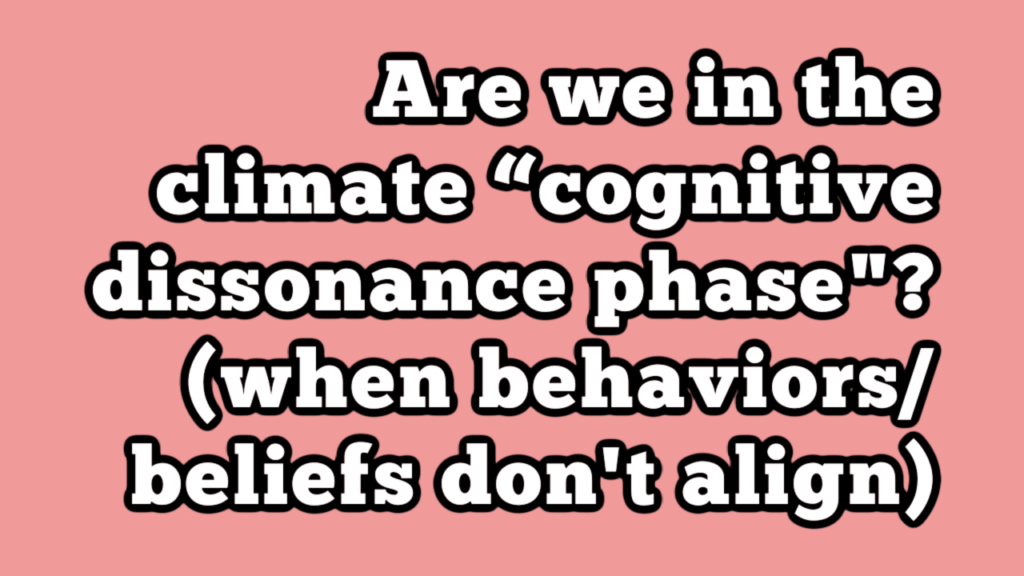Are we in the climate “cognitive dissonance phase”? (when behaviors/beliefs don’t align)

Here’s a note from Harald Walkate:
Future historians may name this time in #ESG evolution the “cognitive dissonance phase”, after the mental conflict that occurs when behaviors and beliefs do not align. Why?
In ESG there are 2 types of behavior (paraphrasing Jane Goodall): 1) “pointing fingers” – engaging in moral purity contests; 2) “finding ways ahead” – using finance to solve problems. Today, many investors engage in finger-pointing even if they say they want to find ways ahead; we *know* what works in ESG yet on a massive scale we engage in the stuff that doesn’t work.
The ABP/fossil situation is a good example: recently ABP announced it will divest from fossil fuels: pointing fingers. (Link to announcement below. In Dutch, sorry). Yet an interview 3 weeks earlier, with the ABP and PFZW chairs, titled ‘We can sell fossil… but are we really making a difference?’ shows it wants to “find ways ahead” (A translated version is attached).
So here’s the dissonance:
– We KNOW climate change is not (only) a supply problem – demonizing energy suppliers won’t fix it. We must reengineer the global energy system and develop new technologies allowing us to meet growing demand. Interview: “[We can] sell the whole thing in one fell swoop … Fine. But are we really making a difference?” What do we DO? Announcement: “Sell the whole thing”.
– We KNOW active ownership is about more than setting ultimatums and walking away if they are not met. Active ownership is about playing a role in the governance, holding management to account, supporting management when it faces challenges and needs informed & professional investors at the table. Interview: “It’s more effective to exert influence, to stay at the table, to be that critical friend to the companies”. What do we DO? Announcement: “We walk away from the table.”
– We KNOW ESG shouldn’t be about moral purity contests. Interview: “We don’t see this as a competition; we’re not in the business of … outdoing one another.” What do we DO? Announcement (video): “this is a big step; this is a beautiful and important step”. We imply that we are ‘leading’ and others should follow.
– We KNOW governments are crucial to meeting Paris goals and smart investors can find ways to inform public policy & work with governments, e.g. through blended finance. Interview: “high on our wish list … is stable policies for the energy transition; public-private partnerships are not getting off the ground in the Netherlands; that requires the government to take the unprofitable top; we would like to be at the table to see what can be done”. What do we DO? Well, nothing, it seems. The announcement doesn’t even mention “government” or “public policy”.
I think it might be better if we leave the cognitive dissonance phase of ESG behind us as soon as possible. Do you agree?
